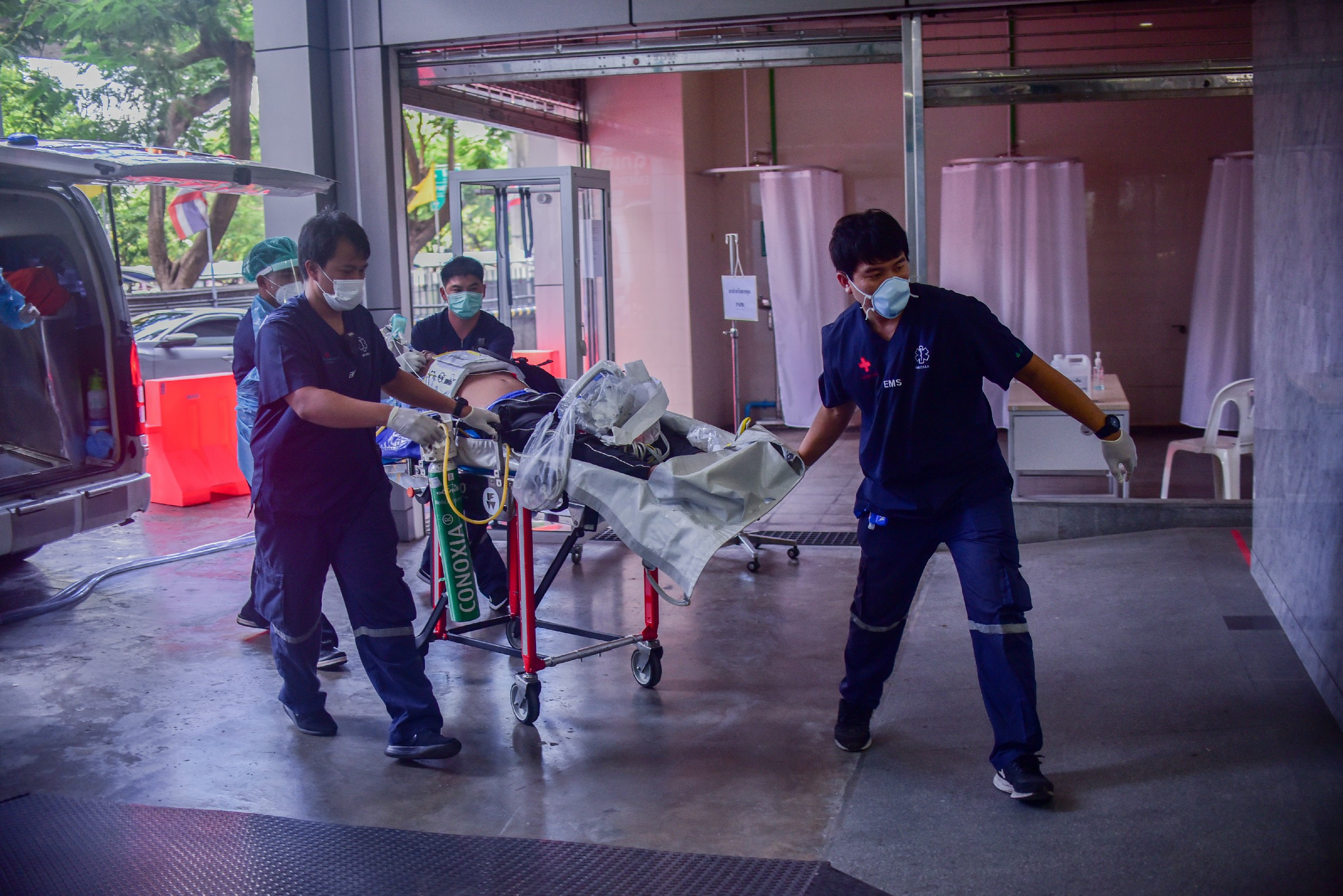Thailand’s public health officials will question personnel at a private hospital in Bangkok regarding the denial of admission for an unconscious Taiwanese tourist which ultimately resulted in the tourist’s death.
After learning of the incident, Public Health Minister Cholnan Srikaew ordered the Department of Health Service Support (DHSS) and the National Institute of Emergency Medicine (NIEM) to conduct an investigation, according to DHSS director-general Dr. Sura Wisetsak.
On December 8, the Facebook page “Yak Dang Diew Jad Hai (Limelight Generator) Return Part 6)” was the first to expose the case.
The Taiwan Tourism Bureau reports that the deceased, who was identified solely as Chen, was a member of a group of nineteen that had traveled to Bangkok. On December 7, he notifies the tour leader prior to embarking on solitary travel, but subsequently sustains severe injuries in a car accident.
At 1.50 a.m. on December 8, a volunteer rescuer from the Ruamkatanyu Foundation reportedly discovered Chen injured in the middle of the road on Phatthanakan Soi 50, according to the Facebook page.
Following cardiopulmonary resuscitation (CPR), he became incapacitated and was subsequently transported to a private hospital situated 500 meters away. A supervisor and a nurse in the emergency room of the hospital, however, reportedly denied him admission and advised that he betransported to a public hospital.
According to both employees, Chen’s care, who was a foreign national not accompanied by any family members, could incur costs that the hospital might not be able to recover.
Chen later died of his injuries at Sirindhorn Hospital, where the initial responders transported him, as stated on the Facebook page.
Dr. Sura stated, “An investigation will be conducted to determine whether the hospital’s patient assessment principles comply with the government’s Universal Coverage for Emergency Patients policy.”
“Also being considered in the investigation is the evaluation of transferring one patient to a different hospital.”
Critical emergency patients are incapacitated individuals who necessitate immediate medical attention subsequent to their rescue, as per the NIEM classification.
Dr. Sura stated that it is untenable to deny treatment to such a patient, and that doing so also violates the Medical Facilities Act, BE 2541 (1998). He added that the hospital personnel involved could face imprisonment for up to two years and/or fines of up to 40,000 baht if found guilty in this case.
Additionally informed of the situation is the minister of tourism and sports, Sudawan Wangsuphakijkosol. She stated that she had requested that the relevant agencies devise more effective preventative measures to ensure that such a tragic incident did not occur again.
State vs Private Hospitals in Thailand
In Thailand, healthcare services are provided by both private and public (state) hospitals. Each type of hospital has its own characteristics, advantages, and considerations. Here are some key points to compare private and state hospitals in Thailand:
- Ownership and Funding:
- Private Hospitals: Owned and operated by private companies or individuals. They are funded through patient fees, insurance, and other private sources.
- State Hospitals: Government-owned and funded by tax revenue. They often receive subsidies from the government to provide affordable healthcare services.
- Cost:
- Private Hospitals: Generally more expensive compared to state hospitals. They may offer a wider range of amenities and services, including private rooms and better facilities.
- State Hospitals: Tend to be more affordable, as they are subsidized by the government. Patients might need to pay a nominal fee for services.
- Facilities and Services:
- Private Hospitals: Often have modern facilities, state-of-the-art medical equipment, and a wide range of medical specialists. Services may include international patient services, luxury amenities, and shorter waiting times.
- State Hospitals: Facilities and equipment may vary, and there might be a larger patient load. Services may be more basic, and waiting times can be longer.
- Doctor Availability:
- Private Hospitals: Access to a variety of specialists. The doctor-patient ratio may be more favorable, leading to more personalized attention.
- State Hospitals: While there are skilled professionals, the demand can result in longer waiting times for consultations and procedures.
- Language Support and International Services:
- Private Hospitals: Often have English-speaking staff and services tailored to international patients. Medical staff may have experience with expatriate communities.
- State Hospitals: English-speaking staff may be less common, and international services might be limited.
- Health Insurance:
- Private Hospitals: More likely to accept a wide range of health insurance plans, both local and international.
- State Hospitals: May accept certain health insurance plans, but coverage can be more limited compared to private hospitals.
- Accessibility:
- Private Hospitals: Concentrated in urban areas and major tourist destinations. More accessible for those in or near metropolitan areas.
- State Hospitals: Distributed across the country, providing healthcare services to a broader population.
- Medical Tourism:
- Private Hospitals: Popular among medical tourists seeking high-quality healthcare services with added amenities.
- State Hospitals: Less common among medical tourists but may still provide competent and cost-effective care.
Ultimately, the choice between private and state hospitals in Thailand depends on individual preferences, budget considerations, and the specific healthcare needs of the individual. It’s essential to research and consider factors such as cost, location, services offered, and the reputation of the healthcare facility before making a decision.






